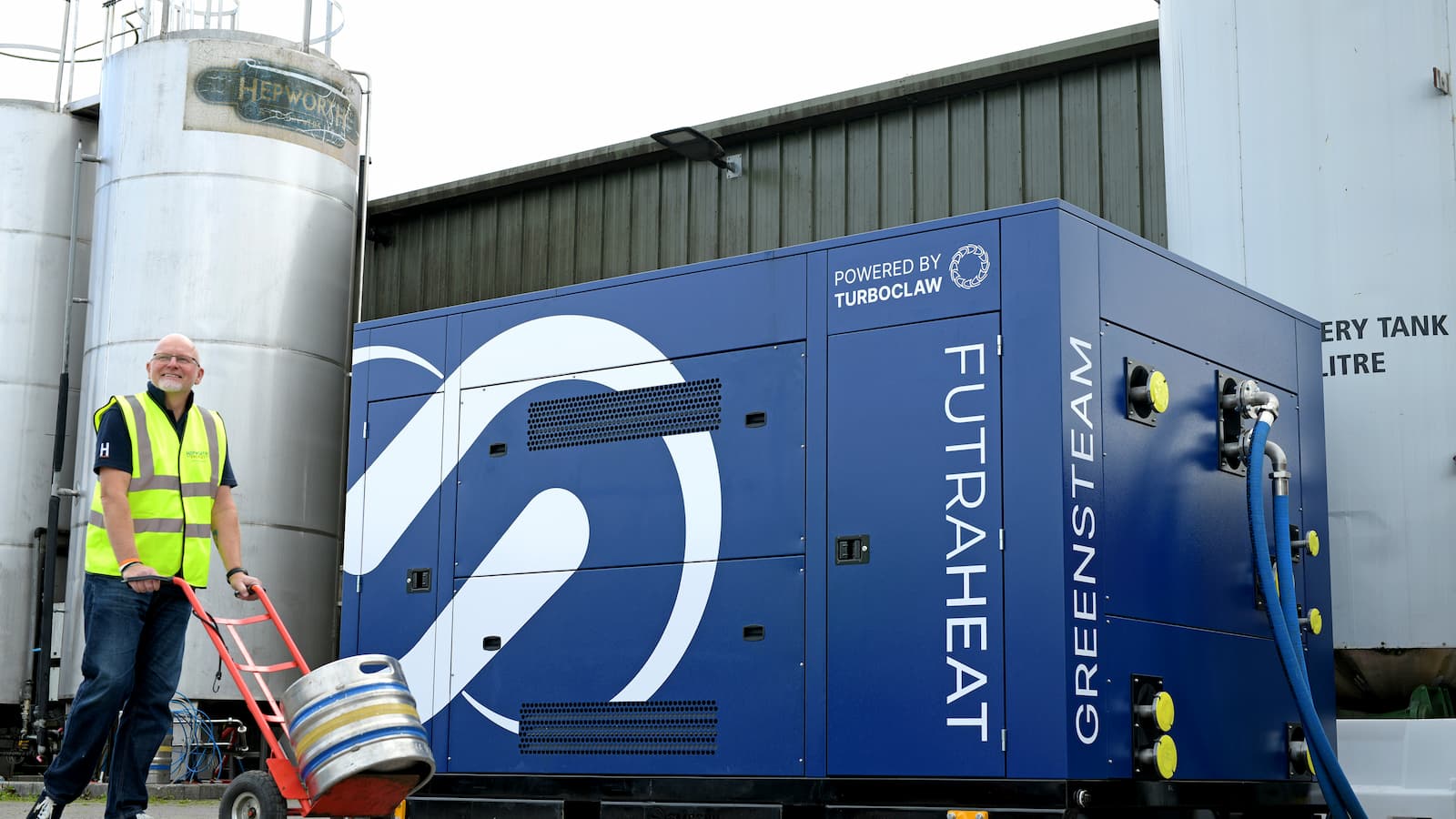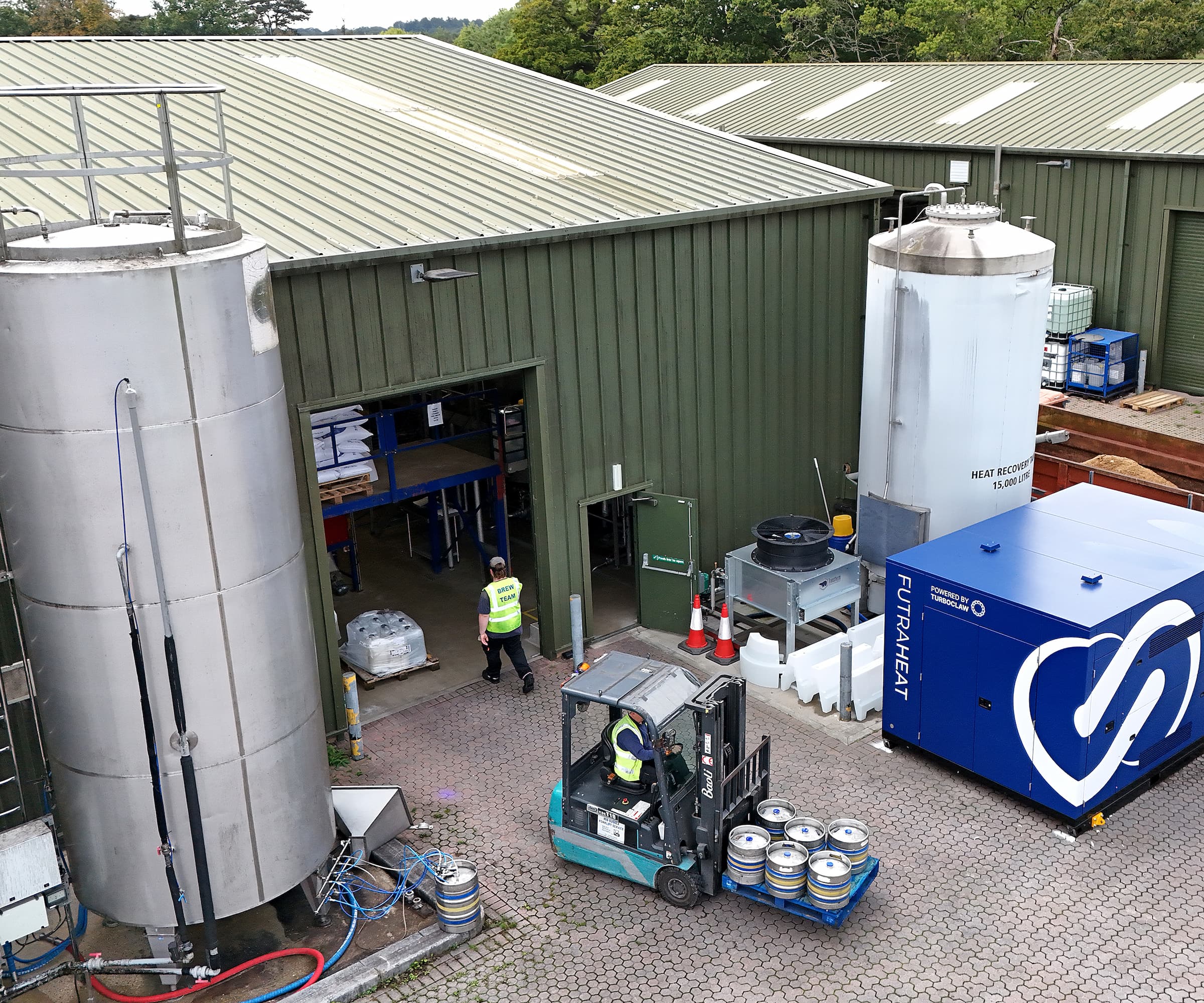British brewery claims it is first to use high-temperature heat pump
The Sussex brewery says it is the first in the UK to use a 130°C heat pump, potentially reducing carbon emissions by 90%

Bring your dream home to life with expert advice, how to guides and design inspiration. Sign up for our newsletter and get two free tickets to a Homebuilding & Renovating Show near you.
You are now subscribed
Your newsletter sign-up was successful
Hepworth Brewery, a craft brewery based in Sussex, claims to be the first UK business to install a groundbreaking high-temperature heat pump that can cut carbon emissions by up to 90%.
The heat pump, developed by Futraheat, will play a critical role in making their brewing process more energy-efficient and sustainable by reducing energy consumption and emissions.
Unlike conventional heat pumps that typically reach 80°C, this new system can reportedly generate high-temperature steam, which is essential for industrial processes like brewing. There are also plans to expand the range across different sectors.
Revolutionising heat generation for the brewing industry

Hepworth Brewery’s use of this technology is expected to reduce energy consumption and carbon emissions by up to 90%.
The heat pump is also projected to cut fuel costs by as much as 40%, offering the brewery a more economical and sustainable alternative to gas or oil boilers. The brewery is considering scaling the technology to cover all its heating needs.
The new system works by capturing waste vapour from brewing that would normally be vented into the atmosphere. Instead, Futraheat's heat pump recycles this vapour, boosting it to 130°C to deliver steam back to the brewing process.
This allows the brewery to reduce its reliance on oil boilers, switching most of its heat needs to the electric-powered heat pump, which runs on a green electricity tariff.
Bring your dream home to life with expert advice, how to guides and design inspiration. Sign up for our newsletter and get two free tickets to a Homebuilding & Renovating Show near you.
Andy Hepworth, Chairman of Hepworth Brewery, expressed his enthusiasm for the project: “This high-temperature heat pump from Futraheat is helping us drastically reduce our reliance on fossil fuels, cut costs, and lower emissions. It fits seamlessly into our existing brewing operations and has the potential to make a significant impact on our overall carbon footprint.”
TurboClaw technology at the heart of the heat pump
At the core of this pioneering heat pump is a patented "TurboClaw" compressor, a novel technology that allows for temperature boosts of up to 60°C.
This high-efficiency component enables the heat pump to reach temperatures previously thought unachievable by conventional heat pumps, making it a game-changer for industries requiring high-temperature steam.
Futraheat's vision for industry-wide adoption
Futraheat sees immense potential for its high-temperature heat pump technology across various industries.
Heat accounts for around 70% of industrial energy demand in the UK, much of which is delivered through steam. With £2 million in funding, including from the Clean Growth Fund, was secured in 2023. Futraheat is already planning the next iteration of its heat pump, which they say will deliver heat up to 150°C.
Futraheat's CEO, Tom Taylor, highlights the importance of this innovation: “Until now, heat pumps couldn’t deliver the high temperatures required for many industrial processes, making them unaffordable or impractical. This project with Hepworth Brewery shows that our technology can meet those demands, and we’re confident it can be rolled out across multiple sectors.”

News Editor Joseph has previously written for Today’s Media and Chambers & Partners, focusing on news for conveyancers and industry professionals. Joseph has just started his own self build project, building his own home on his family’s farm with planning permission for a timber frame, three-bedroom house in a one-acre field. The foundation work has already begun and he hopes to have the home built in the next year. Prior to this he renovated his family's home as well as doing several DIY projects, including installing a shower, building sheds, and livestock fences and shelters for the farm’s animals. Outside of homebuilding, Joseph loves rugby and has written for Rugby World, the world’s largest rugby magazine.

